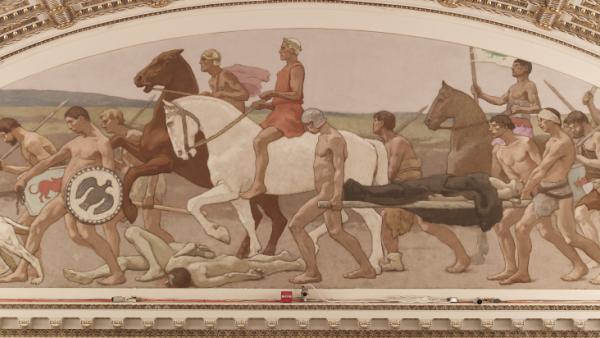Jules Gill-Peterson is a historian and trans writer, and author of one of the first histories of transgender children. Speaking with Anne, she challenges us all to imagine a world with more gender freedom and a world where trans means joy.
Articles
Land Back is a movement that demands the return of native lands to indigenous people. One of its leaders, Hayden King — executive director of the Yellowhead Institute — explains why the movement is gaining traction in Canada.
Horror writer Stephen Graham Jones loves werewolves. He redefined the genre with his 2016 novel "Mongrels," about a family of werewolves on the run in a hostile American landscape — a story drawn from his own background.
In 17th century Germany, the mother of famed astronomer Johannes Kepler, Katharina Kepler, was accused of being a witch. Centuries later, author Rivka Galchen has taken her story and spun it into fiction in her book "Everyone Knows Your Mother is a Witch."
In her book, "Against White Feminism," Pakistani Rafia Zakaria argues that white American feminists prolonged the bloodshed during the 20 year war in Afghanistan. She asks if these feminists ever asked Afghan women of the region what they wanted.
Why do humans still wage wars? Despite their terrible costs, they benefit certain groups, and thoughout history, they've also galvanized social movements and sparked scientific advancements. Margaret MacMillan explains how wars have shaped us.
In "Our Biggest Experiment," climate advocate Alice Bell traces the history of the scientists who have been studying the impact of humanity on the climate since 1856. She tells Anne Strainchamps that science has been critical for spurring the world to act.
Environmental philosopher and bonafide "mountain man" John Hausdoerffer explains how mountains are connected to all life on earth, and what it means to treat them as "living kin."








